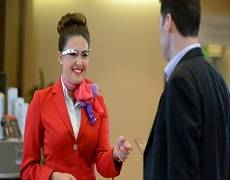February 24, 2014
London conference debates international office measurement standard
 The implementation of an international property measurement standard for offices (IPMS for Offices) moved forward last week when a group of leading professional bodies from across the world met at RICS’ HQ in London. The two-day meeting (20-21 Feb 2014) brought together representatives from many of the 31 member organisations of the International Property Measurement Standard Coalition (IPMSC), who discussed plans for the launch and implementation of IPMS across international real estate markets. A rise in cross-border property investment and expansion by global corporate occupiers has exposed the difficulties that can arise when dealing with differing national and local measurement practices. The first of its kind, IPMS seeks to standardise the way office space is measured around the world. More →
The implementation of an international property measurement standard for offices (IPMS for Offices) moved forward last week when a group of leading professional bodies from across the world met at RICS’ HQ in London. The two-day meeting (20-21 Feb 2014) brought together representatives from many of the 31 member organisations of the International Property Measurement Standard Coalition (IPMSC), who discussed plans for the launch and implementation of IPMS across international real estate markets. A rise in cross-border property investment and expansion by global corporate occupiers has exposed the difficulties that can arise when dealing with differing national and local measurement practices. The first of its kind, IPMS seeks to standardise the way office space is measured around the world. More →


































February 25, 2014
Musculoskeletal disorders rate highlights scale of ergonomic challenge
by Sara Bean • Comment, Facilities management, News, Workplace
More working days were lost last year to back, neck and muscle pain than any other cause. The latest figures from the Office of National Statistics (ONS) show that although there has been an overall downward trend in sickness absence in the UK over the last two decades; with 131 million days lost in 2013, down from 178 million days in 1993, at 30.6 million days lost, the greatest number of staff sick days in 2013 were due to musculoskeletal problems. Regulations and guidance relating to ergonomics in the workplace (the Health and Safety (Display Screen Equipment) Regulations 1992), were published over 20 years ago; and despite being amended in 2002, that’s still aeons in technology terms. The typical modern worker now routinely uses tablets, mobiles and other digital devices; whether at work, on the move or at home.
More →